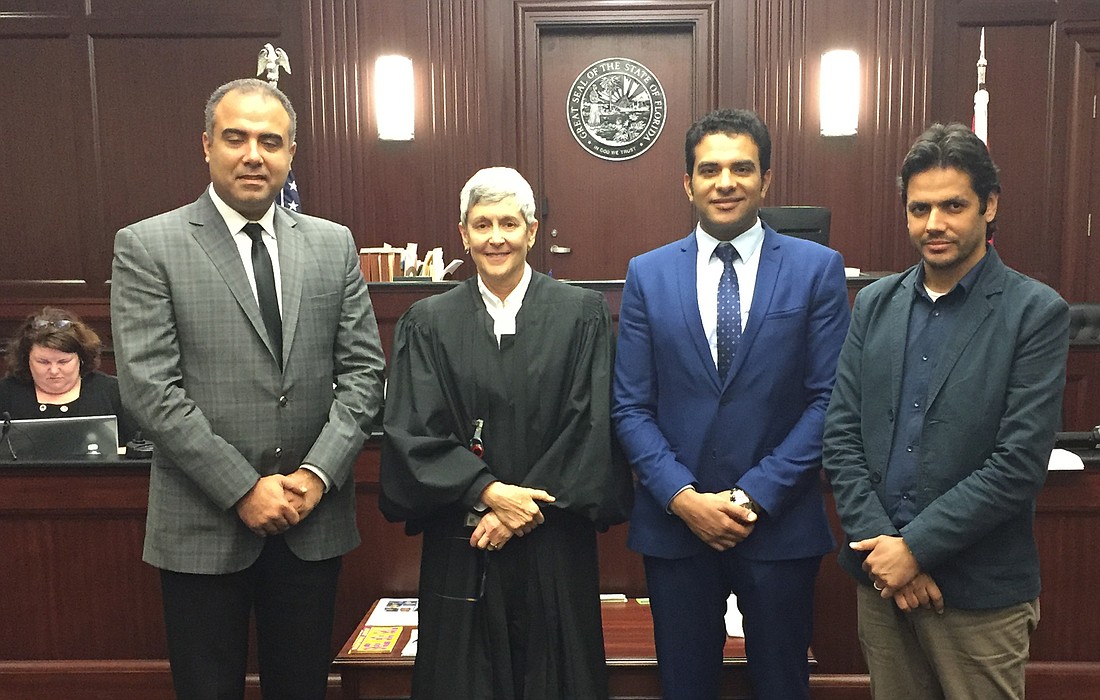
A group of attorneys, prosecutors and a judge from Egypt has been in Jacksonville since Saturday to observe the American legal system and share with the local community how their system of justice works.
On Monday, the delegation toured the Duval County Courthouse and observed proceedings in Circuit Judge Suzanne Bass’s courtroom. They also met with representatives of the American Board of Trial Advocates and toured the Duval Regional Juvenile Detention Center.
On Tuesday, the group met Carla Miller, director of the city’s Office of Ethics, Compliance and Oversight and then visited Florida Coastal School of Law.
Today, they are scheduled to visit Soho Network Solutions for a presentation about crime scene investigation and meet representatives of the Guardian ad Litem program and the Interfaith Coalition for Action, Reconciliation & Empowerment.
The group leaves Jacksonville on Thursday.
“This is about them learning about our system and sharing what their system is like,” said Jason Wells, program manager for GlobalJax, a local nonprofit that provides opportunities for international education and professional exchange.
“We had a great meeting,” said Spohrer Dodd partner Barry Newman, who participated in the ABOTA part of the itinerary.
“They asked us to explain the mechanism of a jury. They wanted to know if a judge can overrule a jury and how jurors are protected. They didn’t share with us a lot of their positions, but they seemed intrigued with the jury,” he said.
“Our legal system is similar to the English and French systems,” said Egyptian prosecutor Ahmed Abdelaziz. “We have civil code and criminal code with judges, prosecutors and attorneys. The prosecutor stays on the same bench with the judge.”
“We assume in the U.S. that our way is the best – and I believe that – but it also can be important to see how other people do it,” Newman said.
“Speaking to people from another country with a different system made me think about the rights we have. It was another evidence that our country was founded on limited power of government,” said Matthew Posgay of Coker, Schickel, Sorenson, Posgay, Camerlengo and Iracki and president of the ABOTA Jacksonville chapter.
The delegates and the people they met here agree that the American and Egyptian legal systems are different, as are some of the professional customs.
Business cards, for example.
“I tried to give my business card to one of the prosecutors,” Newman said. “He told me that in Egypt it’s a crime to accept a business card from a lawyer.”
In fact, it would be impossible to exchange business cards with an Egyptian state attorney.
“Prosecutors are not allowed to have business cards. They have to remain independent with no business relationships – to be fair,” Abdelaziz explained.
He also cited another element of the American judicial system that doesn’t match that of Egypt’s — that prosecutors are elected by the people instead of appointed by the government.
In addition, a prosecutor becomes a judge automatically at age 30, serves four years as a judge and then becomes a senior prosecutor, assuming a good record in both roles.
“It’s very weird to have elections for prosecutors and judges,” said Abdelaziz. “I think it could influence their work.”